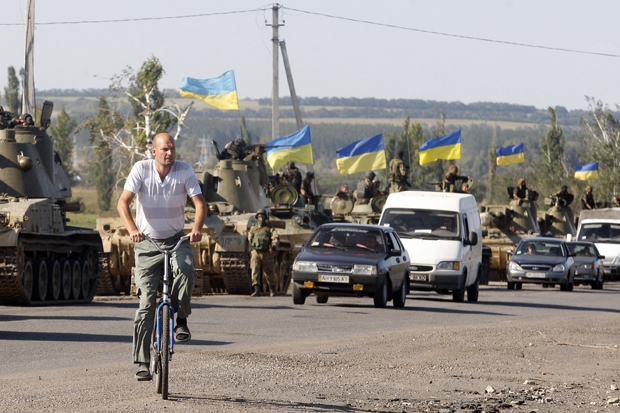This week’s Nato summit was originally intended to look back on lessons learned from Afghanistan and reflect on the notion that (as Barack Obama put it) a ‘decade of war is now ending’. How naively optimistic that seems now.
In the past week a second American journalist has been beheaded in Iraq and the Sunni insurgents who call themselves Islamic State say that a British hostage will be next. So far, their war has claimed more than 25,000 lives. Meanwhile Russia is intensifying its war with Ukraine in a conflict that has seen the loss of at least 2,000 lives.
The dignitaries who arrive in Cardiff for the summit will notice extra security because Britain’s official terror threat has been raised from ‘severe’ to ‘substantial,’ meaning that a planned attack is deemed imminent. This latest escalation is due to concerns about new Islamist camps in Kenya, not Iraq.
The vast majority of Nato members had planned (and budgeted) for a decade of peace. The alliance is still operating on assumptions agreed in 2010: that the Middle East was stable, that Iraq was healing and that the threat of a European ground war died in the last century. None of these assumptions holds now — yet for most Nato members the ability to think strategically, let alone decisively, seems to have vanished.
The last time Nato met in Britain, in July 1990, it was reborn. The Cold War had ended, but Nato would become a diplomatic force and a vehicle for various operations. But it soon had another purpose: Nato allowed European members to skimp on defence and rely on America for protection. The Pentagon now invests three times as much on defence as the rest of Nato’s member states put together.








Comments
Join the debate for just £1 a month
Be part of the conversation with other Spectator readers by getting your first three months for £3.
UNLOCK ACCESS Just £1 a monthAlready a subscriber? Log in